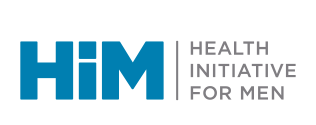Mpox Updates
Mpox (monkeypox) is a disease caused by the mpox virus. The pattern of spread in this global outbreak is primarily human-to-human, sexually associated transmission.
– Vancouver Coastal Health
LATEST UPDATES:
In August of 2024 The World Health Organization (WHO) declared the mpox outbreak a Public Health Emergency of International Concern (PHEIC) due to a significant rise in cases, particularly in the Democratic Republic of the Congo (DRC) and neighboring countries. This decision was made to prompt a coordinated international response to control the spread of the virus in regions where the mpox vaccine was previously not widely available.
HIM is reminding community members that the mpox situation in British Columbia remains unchanged, however it is recommended that everyone in our community receive two doses of the mpox vaccine. A complete series of the mpox vaccine requires two doses, and we encourage those eligible to acquire both doses of the vaccine ahead of any pride festivities or travel plans abroad.
- HIM has been working with health authority partners across the province to ensure our community has access to the mpox vaccine. Please visit checkhimout.ca/mpox/vaccination for more information on how to access the vaccine in your region.
- In partnership with Vancouver Coastal Health, HIM has been able to provide pop-up mpox vaccination clinics in the heart of Davie Village and multiple pride events. Visit the Hot Summer, Cool Health page for more information.
Click here for information regarding the 2nd dose.
BCCDC Mpox Vaccine Eligibility:
Two-Spirit and transgender people and cisgender males who self-identify as belonging to the gay, bisexual and other men who have sex with men community; and at least one of the following:
- Has sex with more than one partner
- Has sex with a partner who has more than one partner
- Has casual sex (e.g. cruising)
- Engages in sex work as a worker or client
BCCDC Symptoms and Illness:
- Symptoms of mpox can start with flu-like symptoms like fever or chills, headache, muscle pain, and fatigue. One to five days later, a skin rash or blisters can appear. Some people experience symptoms differently.
- If you have had close contact with a person with known or suspected mpox, contact your healthcare provider about potential post-exposure immunization and monitor for symptoms. It can take from five days to 3 weeks after exposure for a person to develop symptoms.
- If you become ill, contact a healthcare provider to get tested as soon as possible. Tell your healthcare provider if you had contact with a person with mpox.
- Visit a HIM Clinic, or use the clinic finder on the SmartSexResource website.
- Treatment is available for people experiencing severe symptoms. Learn more on the BCCDC website.
- Until you see a healthcare provider:
- Avoid close, intimate contact and sex with others.
- It is especially important to avoid close contact with people who may be at greater risk of experiencing severe illness including pregnant people, people with a weakened immune system or children.
- Do not share towels, clothing, sheets or other things that have touched your skin.
- Cover any sores or blisters as much as possible with clothing or bandages.
- Wear a mask when you are in close contact with others.
- If possible, have another member of your household care for your animals/pets
